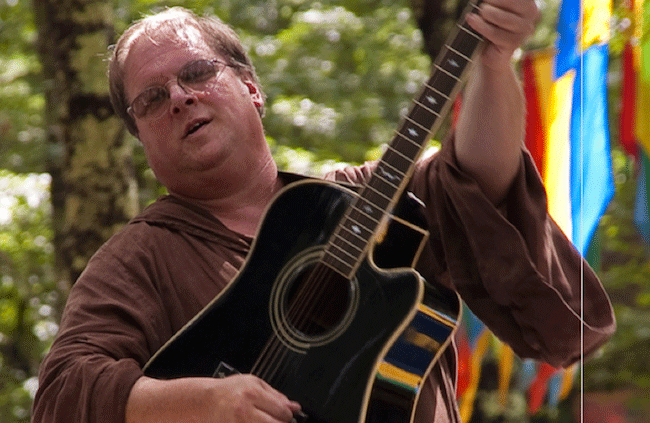Monk-Like Lifestyle and Cognitive Wellbeing
 Who would have guessed that monks were keen cerebral strategists against aging and cognitive impairment? As a way to keep their minds sharp amidst requisite isolation, medieval monks often stored memories in so called “memory-houses” they “built” inside their brains. They furnished each “room” with a kind of memory and when they wanted to retrieve it, they mentally walked themselves to the right room and got what they needed.
Who would have guessed that monks were keen cerebral strategists against aging and cognitive impairment? As a way to keep their minds sharp amidst requisite isolation, medieval monks often stored memories in so called “memory-houses” they “built” inside their brains. They furnished each “room” with a kind of memory and when they wanted to retrieve it, they mentally walked themselves to the right room and got what they needed.
In effect, they created about a geography of memory — a google maps-like server where memories are warehoused, indexed, and organized. And they did it a millennium BEFORE the hard drive was even invented.
Ironically, modern science now tells us we need to be more like celibate, monastic men: we need to actively forge strategies that keep our minds sturdy yet flexible. As we age, our brains find it more difficult to be agile, creative, quick. Instead of, say, fifteen witty cow puns in no time at all, we come up with four after a struggle, and—face it—only one’s really any good. We get easily distracted. We tend to find focusing on a thought more difficult and that we sort of – I don’t know – what’s the word? Drift. That’s it! Drift.
How to avoid the speedy downhill to driving 35mph in the fast lane to an appointment you forgot to make with the blinker stuck in the “on” position? Active intervention is the key.
Given the “graying” of the Western world, researchers at the Center for Disease Control now study how to mitigate the negative effects of brain aging. No agreement on a magic bullet yet (oh, for a simple pill!), but there’s growing consensus that the following tips can help keep the brain young:
Reduce bad stress. We know how stress elevates blood pressure, impairs learning, and impedes memory-formation. Now, good stress—having something to look forward to, having people depend on you, having things to do—that you keep. It’s just the anxiety, the feelings of dread or that your life is out of control. Put the brakes on that.
Keep healthy in general. Eat right, exercise, get regular rest. I know. Your mother’s been telling you this since you were five. So, who’s the adult now?
Use it. Don’t Lose it. Unlike our monks, that means being social with other human beings. Keep your brain working and you’ll keep your brain working. Common sense.
Remember actively. Here you want to be more monk-ish. Make a mental map. Where did you put the keys? Did you imagine buying that new blouse, or did you actually buy it? Are all those charges on your card yours? Pay attention to new information in ways that help you remember it.
Get Schooled. Some universities, like the Columbia and the University of Wisconsin in Green Bay, are offering lifelong learning classes to senior scholars in things like jazz, the periodic table, and motorcycling. Investigate your local uni.
Ask for (neuro)feedback. Research suggests that neurofeedback brain training can help reduce the effects of mental aging. In a recent study sponsored by the Applied Brain Research Foundation of Ohio, neurofeedback was found to significantly mitigate the effects of cognitive impairment caused by “chemo brain”. Cognitive diminishment experienced by the study’s subjects after chemotherapy treatment is similar to what older folks experience as their brain ages: memory “gaps”, sluggish recall and general mental fogginess. Similarly, brain training with neurofeedback may help slow the natural cognitive impairment that accompanies an aging brain. Spin a couple sessions on a neurofeedback machine and you might remember where you left the keys, or that new blouse.
Your mom wasn’t a monk, but she deserves some credit too. Remember what she said? Invest in veggies. Eat an orange or two. Take a walk. Breathe deeply and cultivate learning new things, anything, even the ukulele or motorcycling or canasta. Help yourself rest, help yourself remember, help your brain stay as young as it can for as long as it can. It’s the right thing to do. Even if you’re not a monk.
Photo: Alan Ellis

Leave a Reply
You must be logged in to post a comment.